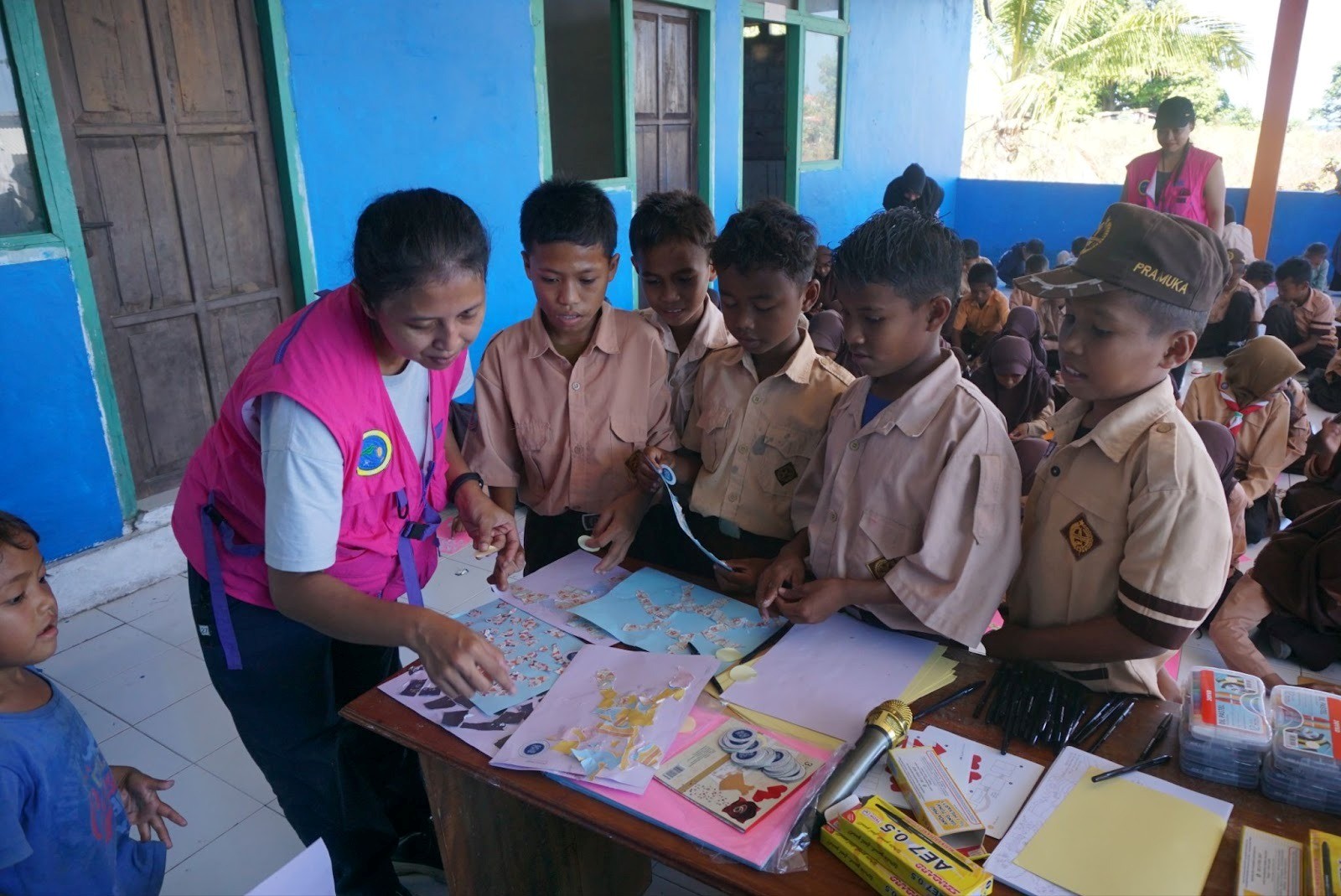Students of ITB Participated in Community Service Program in Kebonturi Village, Cirebon, to Overcome Water Scarcity During Drought
By Adi Permana
Editor Adi Permana

CIREBON, itb.ac.id – The 2022 ITB Student Community Service was held in Cirebon as part of ITB’s contribution to developing the country. The chosen location, Kebonturi Village (Arjawinangun, Cirebon), is known to experience a serious water crisis.
According to information shared by residents, many had difficulties in finding spring water from ideal sites. Some cases led to the discovery of aquifer water (groundwater) at a depth of about 40 meters despite the water being salty. Other cases managed to uncover water that is considered quite ideal at the same depth, albeit in small quantities. This scarcity is closely related to the geographical conditions of Cirebon as a coastal area.
Overseeing this problem, one of the groups in the community service program used the theme of sanitation and clean water to come up with a solution for clean water procurement from the source of surface water, which can be obtained at a depth of fewer than 20 meters. This group was guided by Dr. Eng. Very Susanto, S.T, M.T., an expert in the field.
The search for water began with mapping out drilling sites in rice fields and detecting water sources using the geoelectric method. This method can detect and outline underground conditions based on the hardness of the substance passed by the electrode path. The electrical method carried out is made into four cable paths, each with 288 meters respectively. Eight variations of soil condition data were then obtained as the deciding factor for drilling.

The first drilling is done to ascertain whether the aquifer water can be consumed. This drilling reached a depth of 38 meters for three days, and the water obtained tasted a little salty. The water quality was tested to have approximately 4000 PPM using the TDS electrolyzer tester tool. For household needs, the value must be below 500 PPM. Although the water is colorless and odorless, the test reveals that the water obtained from drilling is unsuitable for usage and consumption.
"This proves that the aquifer water in this village is not proper, so we decided to use another source from surface water that is 12 meters deep, with two wells as alternatives," Fahryan Arditama (SI'20), the head of the group, stated.
The inspection did not stop there; second drilling was carried out at another potential site. Since groundwater tastes salty, the drilling only focuses on surface water. This drilling is considered successful because it can acquire a decent water source with 300 PM quality. Likewise, the result of the third drilling reveals the water to be of 400PM in quality, making it suitable for various activities.

After obtaining two suitable wells, the group built a water storage tower that is accessible to the community during a low supply of water reserves. The water tower is designed with local building vendors, using infrastructure engineering software to analyze its structural strength.
To provide accessible clean water, the group designed and installed the necessary flow of pipes and pumps according to specifications. The group also had to install a power source from PLN.
After three weeks, the procurement of clean water was completed successfully by constructing two 12-meter boreholes, a 4-meter-high water tower, and two reservoirs with a capacity of 2000 liters each. All these are enough to meet the basic demands of 80 houses daily.
These processes involve various applicable disciplines. It may look simple yet it is very much needed in society. Thanks to the cohesiveness and sincerity of the students, the project was a success and benefits the community. This project could have not been done well without the help of mentors and supervisors who act as guidance for both students and locals.
This project is not as easy as it seems. Fahryan mentioned that this project is not as easy as it seems as it needs special skills from different majors for each aspect of its necessities and development. For instance, improving the region’s geoelectricity requires a background in geophysical engineering.
Reporter: Lukman Ali (Mechanical Engineering, 2020)
Translator: Ruth Nathania (Environmental Engineering, 2019)

.jpg)
.jpg)


.jpg)

